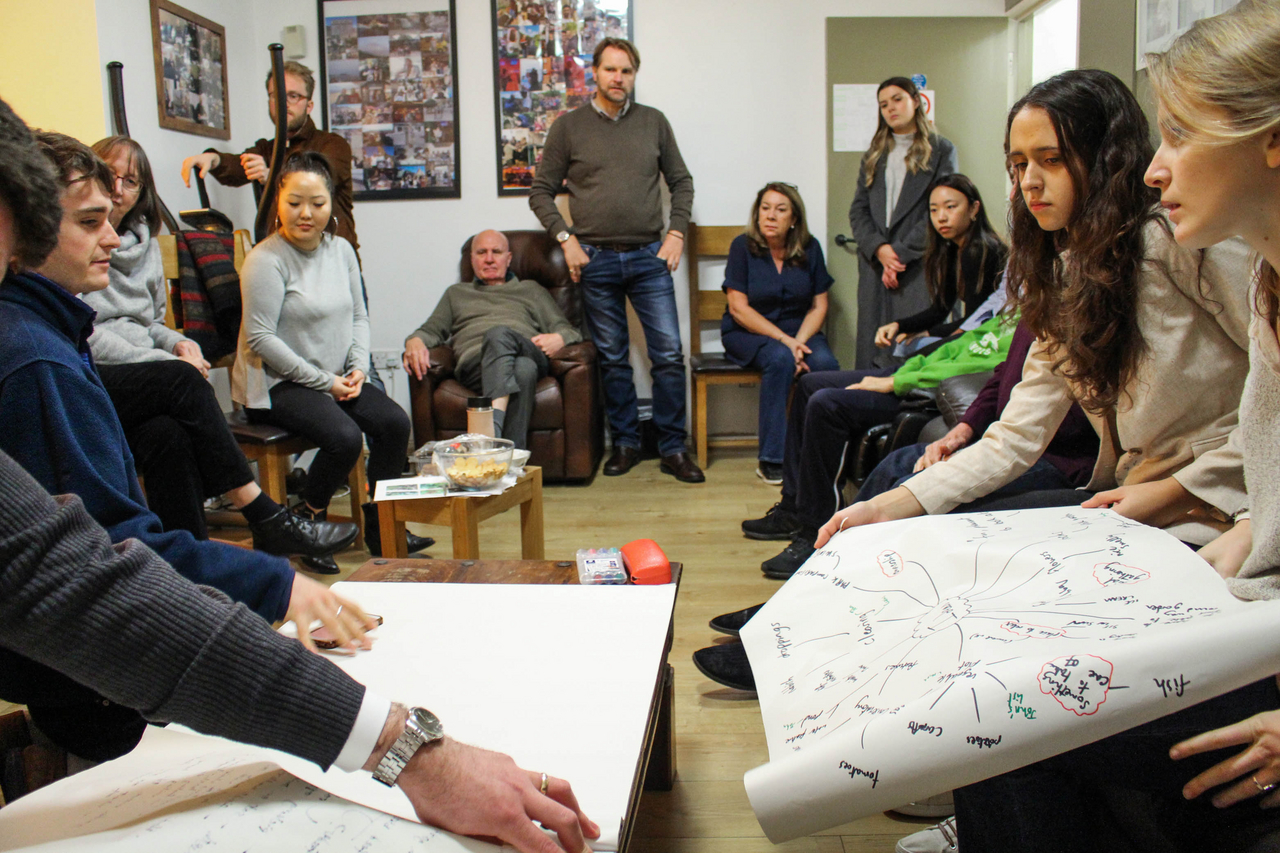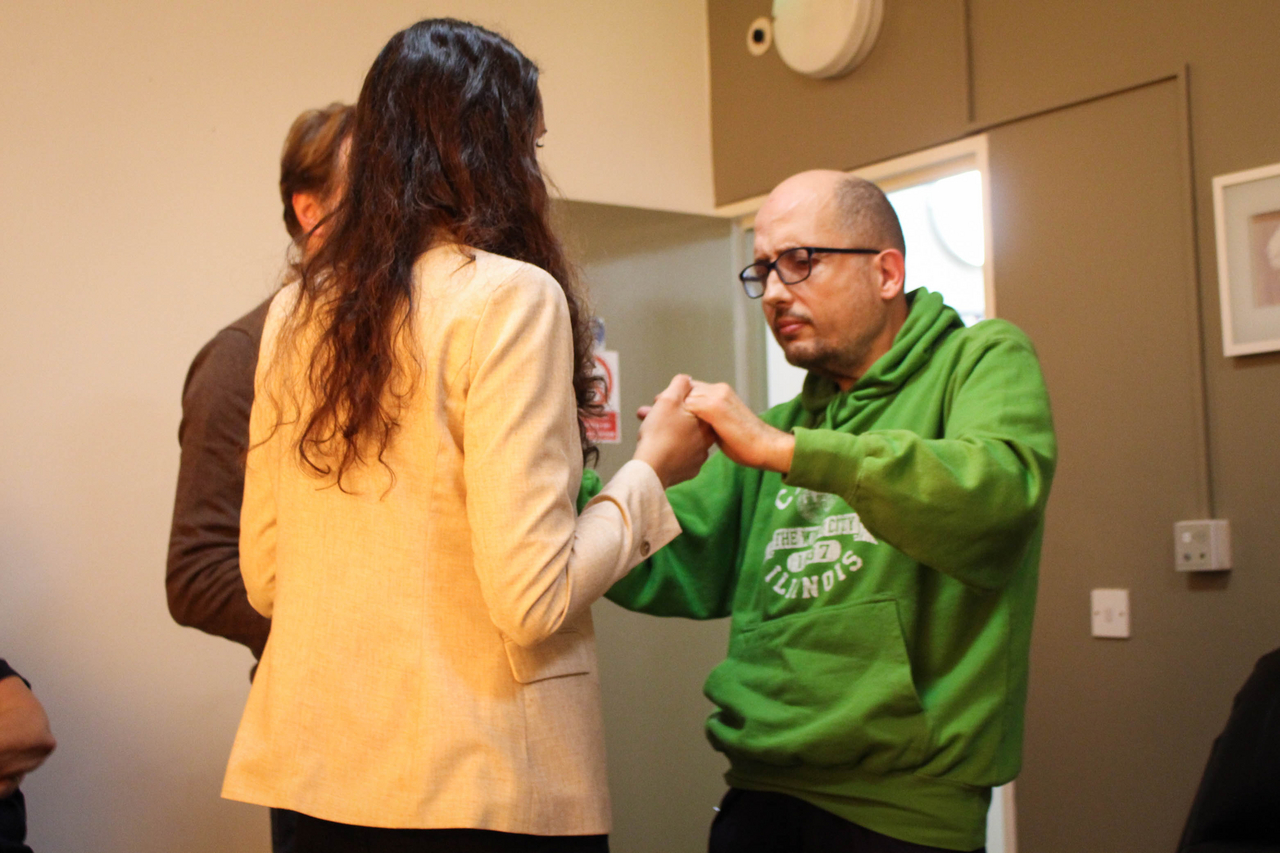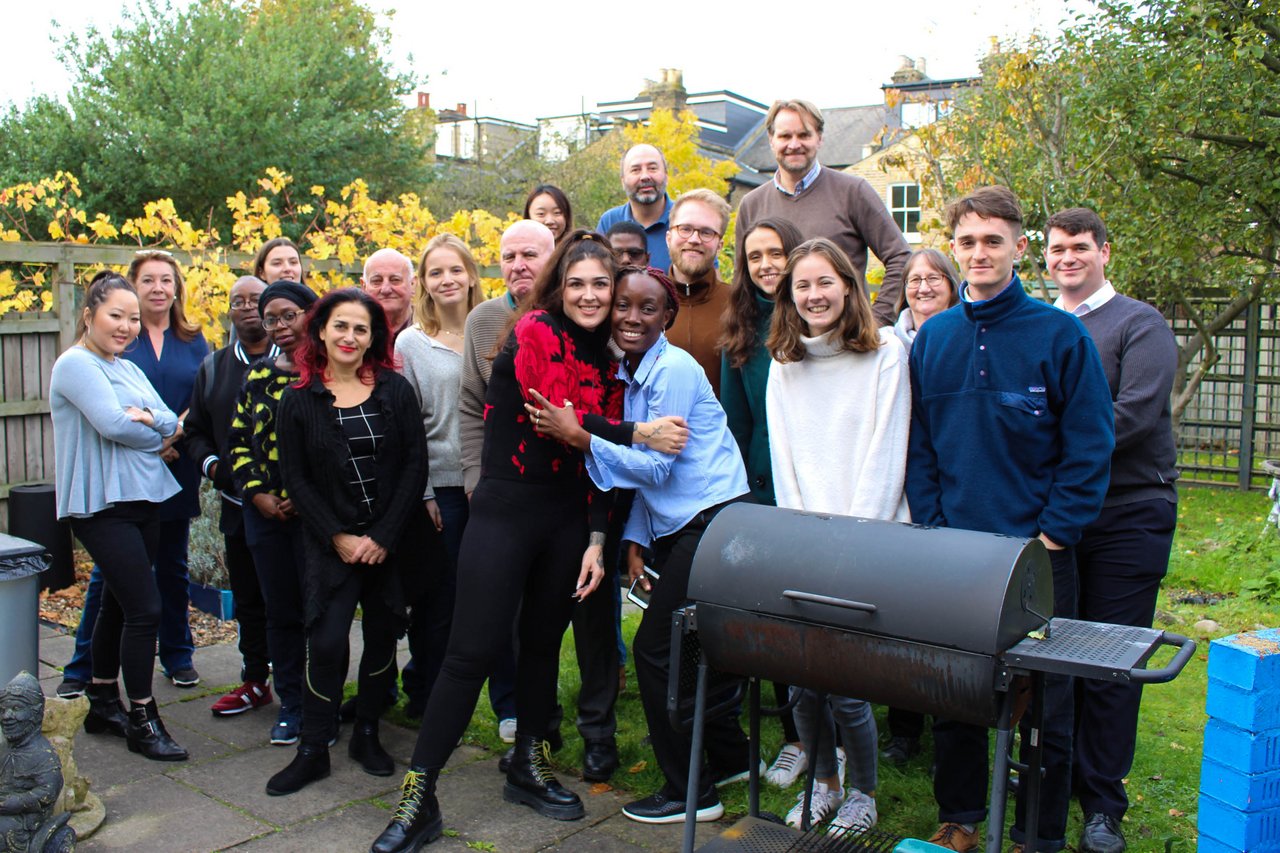Our Social Hackathons programme ran throughout Reading Week in November. Through these events, UCL students collaborated with local charities and community organisations to help solve their most pressing issues.
Population Health MSc student Marine Delgrange took part in the Action on Hearing Loss Social Hackathon, where her group helped design a sensory garden for a residential care home for people who are deaf and have additional support needs. Read on to find out what she thought of the experience!
Tell us what you did!
Action on Hearing Loss supports people who are deaf and deafblind. Since the charity has both front and back gardens they tasked us to come up with some ideas to make use of the back garden for the residents who live there. We were given a tour of the garden and were presented the ‘problems’ the residents currently faced when using them.
After the tour we all sat down together to discuss how we can make the garden more inviting and fun. The interpreters who were present on the day facilitated the communication, so we were able to discuss what the sensory garden should look like according to the residents living there. Of course we also had to take into account the barriers they could be faced with when entering the garden. Some of our ideas involved building a water fountain, growing vegetables, putting light trails around the garden etc.

What made you decide to sign up for this Social Hackathon?
I always try to look for new opportunities and since I am very interested in public health, I was lucky to have been allocated to this specific Social Hackathon. It’s a great opportunity to hone problem-solving and innovation skills and the good thing is that the Social Hackathons took place during reading week. I’ve also participated in other Social Hackathons abroad, so I had a rough idea of what to expect.

Were there any challenges?
I think the main challenge was the communication between the volunteers and the deaf residents. The younger people who were deaf were more communicative, whereas those who were older were less so. However, with time we had a good idea of what the residents wanted us to do with the garden, so it was great to know what they had in mind.

Would you recommend doing a Social Hackathon to others?
I would definitely recommend Social Hackathons to other volunteers. I think they’re a great way to get to know other students, help out in the community and improve problem-solving and teamwork skills. This particular Social Hackathon was also a great opportunity to learn from and work with people who are deaf. They can also be a great way to get a break from your studies and still do something worthwhile. .
I never had the opportunity to work with people who are deaf and deafblind, so this Social Hackathon gave me the change to do so.
If Marine's story has got you inspired to volunteer with Action on Hearing Loss check out all their current opportunities. We’ve also got lots of other opportunities to help support people with disabilities, so you have lots to choose from!
You can also find out more about our Social Hackathons and let us know if you’d like to be contacted ahead of the next events!